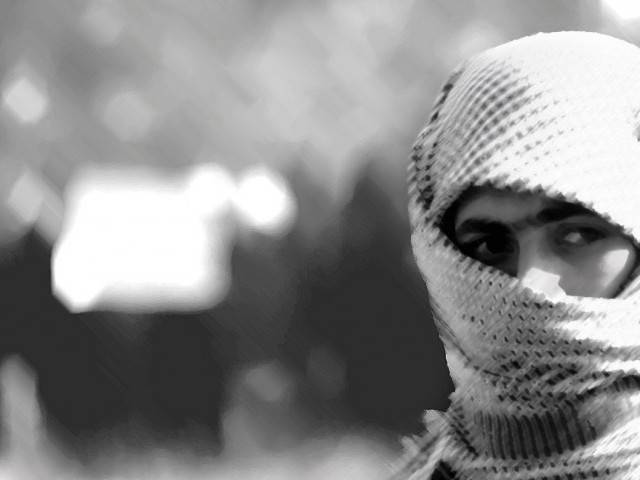Afghanistan has long been the territory of great warriors. It is said to be unconquerable. Alexander the great said, “May God keep you away from the venom of cobra, the teeth of the tiger and the revenge of the Afghans.”
Many wars have been fought on this ground but no one has ever been able to defeat these people. Anglo-wars have been fought; it has been a ground for Russian great game and US. The fallout of all these wars is nothing but humiliating and disastrous defeat. As Peter Tomsen writes in his book “The wars of Afghanistan” He has given a detailed account of defeat of world powers and the conflict within tribes.
Afghanistan refused to recognise Pakistan in 1947 and voted against the nascent state. It is because of these hostile neighbours, India and Afghanistan, role of army became inevitable and as a result it became a ‘garrison state’. Since its inception Pakistan dived into security dilemma. There is no denial that Khan Abdul Ghaffar Khan and his aides were family friends of Nehru and Gandhi.
Afghanistan was ruled by Zahir Shah who skillfully promoted his nation’s interest. He remained neutral in World War II and in Cold War, cleverly opting Non-Aligned moment which resulted in rapid development both by US and USSR, in a mood of super power competition orchestrated by Zahir’s cousin and brother-in law Sardar Daud.
Zahir Shah presented constitutional reforms which excluded members of Royal Family. In 1969, due to unfair elections, crippling economy and natural calamity entire system became stagnant. And, in 1973, Sardar Daud came with military support and taken the rein. It is necessary to note that during his reign, he had viewed Pakistan with evil eyes and ignited the infamous Greater Pakhtunistan doctrine. Shuja Nawaz writes in his book ‘CROSSWORD’ that because of Daud’s confrontational policies Bhutto Sahab had to frame Afghanistan wing in ISI.
In 1979, when Babrak Kamal was installed by USSR, he proved to be ineffective because it was impossible to run the government under those crippling circumstances and failed to reconcile Afghanis with Soviets. Later, Najeebullah was installed but result remained the same. This was the event that shaped the history of the world; Cold War came to an end as the Soviets faced a humiliating defeat in Afghanistan. This horrific chapter brought every evil thing to Pakistan.
After ousting USSR forces, locals of Afghanistan welcomed Mullah Mansur and the Taliban government. The Taliban’s simple message of Muslim fundamentalism proved immensely popular. They got the strong foothold in the war-torn country with the help of the garrison state.
Even after being ousted from Kabul the Taliban control about two thirds of Afghanistan, but beyond the mountains north of the city there remains a strong opposing force calling itself the Northern Alliance. It is led by members of the previous government in Kabul, but there is also a tribal distinction. The Taliban areas are largely the home of Pathan tribes (known more locally as Pashtun and speaking Pashto), whereas the Northern Alliance is made up of Uzbeks, Turkmen and others.
Warfare continued, Pashtun prisoners in Northern Alliance were killed and in response to that Pashtun after occupying Mazar-e-Shariff butchered many Shias. Eventually, the two groups agreed to take first step towards forming a joint government but of no use. Gradually, Taliban became hardliners and only Pakistan and Saudi Arabia recognised them.
An old wine in a new bottle
Trump’s Afghan policy is more like an old wine in a new bottle; he has followed the policy of his predecessor Obama’s Pak-Afghan policy. His diatribe against Pakistan has added insult to injury. Uncle Sam can’t win with the army of around 12,000 when Taliban have occupied 60 percent of the country including Hemland province. NATO has failed miserably in Afghanistan but don’t want to accept defeat.
India’s wider role in Afghanistan
Doval’s doctrine is “war against Pakistan through soft power”. India has built dams, parliament roads, consulate generals and pharmacy in Afghanistan. Pakistan should know Afghanistan will never maintain distance from India, it will always try to seek amicable relationship with India come what may. Pakistan needs to reconcile its differences with Afghanistan and vice versa and initiate public diplomacy to counter India.
Pakistan’s role
US should understand that Pakistan is crucial for peace in Afghanistan. Without it, peace can never prevail. Pakistan is a solution not a problem. It tried hard in bringing Afghan Taliban to the negotiating table but unfortunately peace process was hampered by US when it killed Mullah Mansoor.
Geo-politics of Afghanistan
India, China, Russia and Iran all have stakes in Afghanistan.
- India wants to isolate Pakistan by occupying its neighbours. They will have access to Central Asian states and Afghanistan by passing Pakistan. Igniting Baloch insurgency in Balochistan, creating hindrances in the way of CPEC. RAW and NDS nexus is undeniable.
- China overnight has become the largest investor in mining industry of Afghanistan because of vast natural resources. Therefore, they have been contributing in peace conferences and in quadrilateral process which they have never done before. Peace in Afghanistan is necessary for them.
- Russia is muscling-up. They have been arming Taliban to fight ISIS. Actually, it’s an old chess game. US is messing in Syria so the Russian will try messing up things in Afghanistan. Putin’s foreign policy achievements are stabilising Afghanistan and winning the hearts of the masses.
- Iran is using Taliban and arming them to fight ISIS.
Plausible Solution
- US need to address Pakistan’s anxieties over widening Indian role in Afghanistan rather than using mother-in-law like tactics.
- Instead of using tough love and sticks US should get Pakistan on the table else they will lose Pakistan as an ally.
- Reallocation of funds to improve infrastructure in Pakistan and Afghanistan.
- Pakistan should keep aside the long and rotten Indian-centric policy in Afghanistan and initiate soft power and public diplomacy.
- There should be no halt to backdoor diplomacy come what may.






